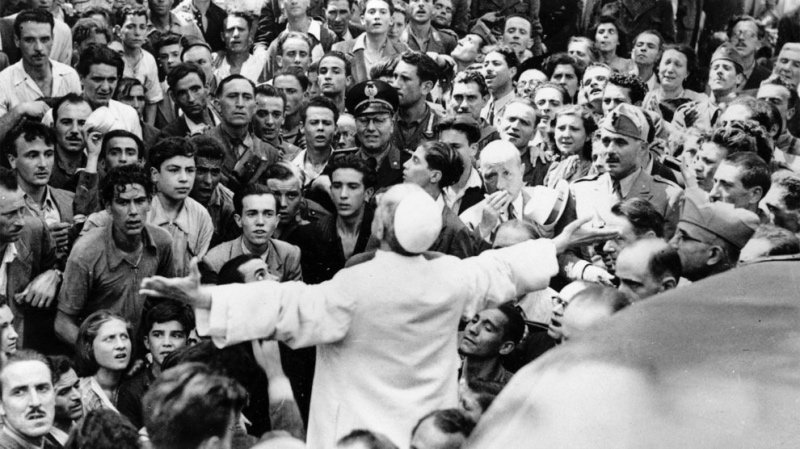There have been more positive encounters between Roman Catholics and the Jewish people since the conclusion of the Second Vatican Council in 1965 than there were in the first 2,000 years of the Christian church. But one major flashpoint has remained unresolved: the bitter controversy swirling around the role played by Eugenio Pacelli, whose 19-year pontificate as Pius XII began in 1939, in the wartime treatment of European Jews.
On Monday Pope Francis announced that the Vatican archives covering Pius XII’s reign will at last be opened. I have been personally involved in this dispute for more than three decades and have long demanded that this obstacle needs to be fully and finally removed if the historic revolution in Catholic-Jewish relations is to deepen and advance.
The most serious charge made against Pius XII by his critics, Catholic and Jewish, is that he was inactive, indifferent, and ineffective in the face of Nazi Germany’s horrific policy of mass murder during the Holocaust, when six million Jews were killed in the heart of what Pope John Paul II has called “Christian Europe.”
Pius XII’s “silence” and inaction in the face of radical evil, it is charged, helped seal the fate of the Jews in Europe.
The criticism of Pius XII surfaced as early as the mid-1960s, after The Deputy, a play by the German Protestant playwright Rolf Hochhuth presented a thinly disguised account of the Pope’s activities during the war. The play created such a public furor that Pope Paul VI ordered that more than 5,000 pages of official Vatican records from the wartime period be released to the public to counter Hochhuth’s claim that Pius XII failed to respond adequately to the Nazi regime’s genocidal policies.
The release of those documents was concluded in 1981, but it did not silence Pacelli’s critics. In fact, it had the opposite effect. Because the 5,000 pages represented only a carefully selected partial record, demands intensified in the 1980s and 1990s that all pertinent Vatican records be made available to appropriate scholars, both Christians and Jews, for intensive study. Back then, I wrote that while the limited release of Vatican documents was necessary, it was not sufficient.
The demands for full disclosure were consistently rejected, even when two prominent American Cardinals, Joseph Bernardin of Chicago in 1992 and John O’Connor of New York in 1996, joined in.
Speaking at Clark University in Worcester, Massachusetts, that year, O’Connor declared: “Yes, I would like to see [the archives] opened…It would be much better for the world, much better for the church, if the archives were opened tomorrow.”
In response, Vatican leaders have cited church policy that archival records cannot be released for 75 years – a justification that expires next year with the 75th anniversary of Nazi Germany’s defeat and the end of the Holocaust.
Many countries have long since exposed their own actions during the war. Since the end of the Cold War, previously closed records from the former Soviet Union, East Germany and a host of other countries became available for inspection. A collective act called “Heshbon Ha-Nefesh” (Hebrew for “inventory of the soul”) has assembled a critical analysis of the roles played during the Holocaust by Switzerland, Sweden, Spain and Portugal as well as other neutral nations and the Allies.
Read the article by James Rudin on Sight magazine.

